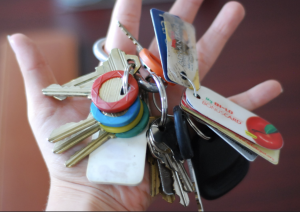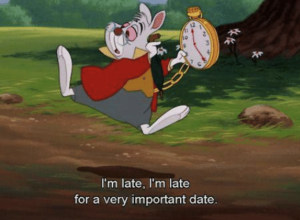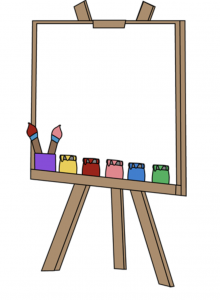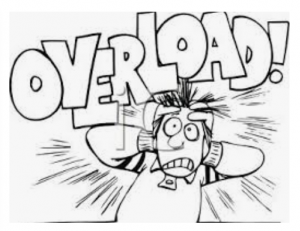1 Chapter 1: Welcome to the MAT Program
Kansas State University: MAsters of arts in teaching Program
The Master of Arts in Teaching (MAT) Program at Kansas State University (KSU) is a specially designed program for people who have earned a Bachelor’s degree in another area and want to pursue a pathway to teaching. In just one year, this pathway provides students with the opportunity to earn a masters degree and recommendation for Kansas initial teacher licensure or their home state. Students across the United States, and even in other countries, can participate in this program as Kansas maintains reciprocal teacher certification agreements with all 50 states.
There are many things that make the MAT program unique. I have listed just a few of them below!
- All online courses are taught by certified KSU faculty members to ensure rigor and high-quality instruction.
- The program is designed as a cohort model, so all students proceed through the program coursework as a group.
- GradCats are assigned to students in every course to support KSU faculty in providing feedback, grading and ongoing support.
However, the most special part of of the MAT program is you! As a student, you bring valuable background knowledge and lived experiences that make the MAT program unique. I look forward to learning about these experiences and supporting you on your exciting journey towards your Master’s of Arts in Teaching!
EDCI 710: Social foundations of K-12 education
This course is a critical examination from multiple perspectives of the historical, sociological, philosophical, economic and legal intersections impacting public K-12 education in the United States of America.
Course Introduction and Syllabus
Social Foundations in K-12 Education (EDCI 710) explores the historical and current relationship between public schools and society. Specifically, this course will explore the implications of this relationship on teaching and learning . The course begins with a critical reflection on your own student biography. After which, a brief overview of the history of education in the United States will be provided. The course will then provide an in-depth examination of specific philosophies of education. The questions of what are freedom, democracy, instruction, power, and choice are central to this examination. At the end of the course, you will think about how your role as a future teacher can promote social change and social justice.
The following section provides an overview of the College of Education’s Vision, Mission, and Conceptual Framework. Each of which provided the foundation upon which this course was designed.
College of Education Vision
“Preparing educators to be knowledgeable, ethical, caring decision makers for a diverse and changing world.”
College of Education Mission is fulfilled through:
- the delivery of exemplary instruction to students at the undergraduate and graduate levels;
- production, interpretation, and dissemination of sound and useful research and scholarship;
- leadership, collaboration, and service within the profession; and
- promotion, understanding, and celebration of diversity.
College of Education Conceptual Framework
The Conceptual Framework (CF) serves as the guide for fulfilling our vision of preparing educators to be knowledgeable, ethical, caring decision makers for a diverse and changing world. The College of Education strives to address three major areas in preparing the teachers of tomorrow: general education, content area studies, and professional studies.
The Conceptual Framework organizes 10 standards in professional studies into the following four categories:
- The Learner and Learning
- Content Knowledge
- Instructional Practice
- Professional Responsibility
The conceptual framework also includes the following dispositions:
- Values Learning and Professional Development. Dedicated to acquiring and applying new ideas about content, pedagogy, and students.
- Commits to Professional, Ethical, and Legal Conduct. Committed to obeying the law and abiding by institutional, state, and national professional and ethical standards.
- Values Positive, Caring, and Respectful Relationships. Committed to interacting with students, colleagues, and community members with care, compassion, and respect.
- Embraces Diversity, Equity, and Fairness. Recognizes and values human differences and is committed to meet the educational needs of all students.
- Commits to Wise and Reflective Practice. Dedicated to careful reflection on instructional decisions and takes actions to improve professional competence.
Keys to Success
As you begin this course, it is critical to remember that you are committing to  intensive online work at a graduate level. In order to be successful, you will have specific responsibilities that will need to be fulfilled to ensure successful completion of the course. To assist you, I have outlined some Keys to Success, that will help you as you begin your journey:
intensive online work at a graduate level. In order to be successful, you will have specific responsibilities that will need to be fulfilled to ensure successful completion of the course. To assist you, I have outlined some Keys to Success, that will help you as you begin your journey:
- The White Rabbit!

Do NOT become the “White Rabbit” (who is always late), as this will certainly result in a disastrous end for you! Please make sure you are prepared to complete extensive amounts of reading, writing, and assignments. Please make sure to closely examine the required readings, assignments and due dates provided in Canvas and in the Course Schedule document (see the Introductory Materials folder in the Modules tab on Canvas) and figure out a plan to manage your time. In this way, you will be able to successfully complete all the coursework required of you in a timely manner!
- You are NOT an Island!

Even though you are taking this course online, you MUST remember that you are NOT an Island! You have been assigned a specific GradCat to provide guidance, support and feedback throughout the course. Your GradCat will be an outstanding resource for you. In addition to working directly with your GradCat, I will be setting up daily Dazed and Confused Sessions where you can zoom in and get support, ask questions, and connect with your peers. Finally, if you prefer a more traditional means of communication, you can email me anytime at dperez@ksu.edu.
- You’ve Got Mail!

The primary way in which you will receive course-related communications is through email messages to your official K-State e-mail address. Therefore, it is critical that you check your K-State email at least once a day. You may also receive messages via Canvas or within the Canvas gradebook (as comments are posted on your assignments/coursework).
- Canvas: Not just for Painting, but for Posting!

All the content for this course will be posted on K-State Online, or Canvas, which is the course management system at Kansas State University. When the course opens on Canvas, students will be able to see all the required materials for Week One in the Week One Course Module on Canvas. At the end of Week One, the course Materials for Week Two will be posted in the Week Two Course Module on Canvas. Additional information for the course may be posted under the following tabs: Announcements, Assignments, Grades, Quizzes, Zoom, Chat, and Library Resources.
- “A” or Nothing!

As a future teacher, it is important to think “beyond the letter grade.” Therefore, I would like you think “beyond” the grades you are getting in this course. This is not to say your individual feedback and grades will not be posted. However, I would like you to focus more on what you are learning rather than the grade you are getting. Rest assured, we will be posting your grades. In fact, my goal is for all the feedback and grades for assignments given within one week of submission.
Tips from your Grad Cats!

The following tips have been compiled based on feedback from the GradCats!
- Communication is the key to the success in this program, if you have any questions be sure to communicate directly with your Grad Cat first! Dr. Perez will be contacted by your GradCat if her support is needed.
- Technology you want to have: Office 365 suite, KSU connect, personal One Drive on Google, and Zoom (you have free access to an unlimited zoom).
- Make time for quality work the first time – feedback from GradCats should be to nudge your thinking not correct grammatical errors.
- Pay attention to the Due date and avoid confusing it with the Available until date that appears just before the Due date. The Due date is the actual deadline for your assignments. NOTE: In this course, if you have an “Available until” notice, you are most likely required to provide peer feedback the day after you have submitted a specific assignment.
- If you are going to turn in an assignment late, let your Grad Cat know that you are having problems on the assignment BEFORE it is overdue. Acceptance of a late assignment is contingent on you notifying your GradCat ahead of time AND a valid excuse.
- If you have questions about an assignment, contact your Grad Cat before the assignment is due (asking questions at 9:00 pm on the night that the assignment is due is not the best time to ask questions because you most likely not get a response until the next day.)
- Read the rubric carefully to ensure that all requirements have been met before submitting it your assignment to Canvas.
- Proofread your work and make sure it is as polished, empirical, and professional as possible.
- Make sure to be collecting artifacts for your portfolio for EVERY class!
- Do not feel like you are alone, there are many people who want you to succeed, and they are willing to work with you and help you.
- Finally, remember that this is a graduate level program – if you have a lot going on in your personal life that keeps you from dedicating time to coursework consider if this is the best time for you to take on this program.
Pitfalls to avoid!

- It is critical that you read all the instructions for every assignment.
- Make sure to test any attachments to see if the links open – don’t assume the link is fine!
- Please be sure to “grant access” to presentation links so Dr. Perez, your GradCat, and your peers can view them!
- Try to communicate with GradCats in Canvas or via their K-State email. GradCats do not receive alerts if you leave a comment in an assignment so it might be missed if let there!
- Keep up with the course work throughout the program, because once you fall behind it is hard to catch up and you will lose points for late assignments.
- Do not fall off the radar if you are having problems, please contact your Grad Cat if you hit any difficult patches along the way. We will do our best to work with you as your success is our top priority!
Conceptual Framework
This course, a key part of an approved program in the College of Education, includes objectives in the following categories of the Conceptual Framework.
The Learner and Learning
- Learning Development. The educator demonstrates an understanding of how individuals learn and develop intellectually, socially, and personally and provides learning opportunities that support this development. (COE CF #1, KSDE #2)
- Learning Differences. The educator is flexible and responsive in seeking out and using a variety of strategies to meet the cognitive, physical, emotional, and social needs of all students. (COE CF #2)
- Learning Environment. The educator uses an understanding of individual and group motivation and behavior to create a learning environment that encourages positive social interaction, active engagement in learning, and self-motivation. (COE CF #3, KSDE #5)
Content Knowledge
- Application of Content. The educator is a reflective practitioner who uses an understanding of the historical, philosophical, and social foundations of education to guide his/her educational practices. (COE CF #5, KSDE #13)
Instructional Practice
- Assessment. The educator understands and uses formal and informal assessment strategies to evaluate and ensure the continual intellectual, social, and personal development of all learners. (COE CF #6, KSDE #8)
- Planning for Instruction. The educator understands the role of technology in society and demonstrates skills using instructional tools and technology to gather, analyze, and present information, enhance instructional practices, facilitate professional productivity and communication, and help all students use instructional technology effectively. (COE CF #7, KSDE #12)
- Instructional Strategies. The educator understands and uses a variety of appropriate instructional strategies to encourage and develop various kinds of students’ learning including critical thinking, problem solving, and reading. (COE CF #8, KSDE #4)
Professional Responsibility
- Leadership and Collaboration. The educator fosters collegial relationships with school personnel, parents, and agencies in the larger community to support students’ learning and well being. (COE CF #10, KSDE #10)
Dispositions
- The educator seeks to keep abreast of new ideas and understandings in teaching and learning. (COE CF #11)
- The educator accepts responsibility as a professional to maintain ethical standards. (COE CF #12)
- The educator demonstrates a belief that all students can learn, has high expectations for all students, and persists in helping all students achieve success. (COE CF #13)
- The educator demonstrates a belief in the inherent dignity of all people, respects the customs and beliefs of diverse groups, and provides equitable opportunities for all students to learn. (COE CF #14)
- The educator is a reflective practitioner who continually evaluates the effects of his or her choices and actions on others (students, parents, and other professionals in the learning community), actively seeks opportunities to grow professionally, and participates in the school improvement process, Kansas QPA. (COE CF #15)
Guiding Essential Questions
- What is the purpose of education/schooling? Social control? Social efficiency? Social mobility? Making “good” citizens?
- What are the foundational philosophies of education upon which K-12 schools in the United States are designed? Which philosophy of education will drive your future professional practice?
- What is the teacher’s role? In the classroom? In the school? In the community? In general?
- What laws and legislation affect and influence education? You as a teacher? Your students? The parents/community? The curriculum and classroom?
- How do A through D above manifest themselves in the classroom, curriculum, and instruction to promote social justice?
Student Learning Outcomes (SLOs) From KSDE #13 Content Standard
- The educator understands how and why the American system of education developed.
- The educator has critical awareness of the norms, philosophies, and values inherent in the American system of education.
- The educator understands how social forces have shaped and continue to shape American education.
- The educator understands specific philosophies of education and the way in which they are implemented in the classroom.
- The educator is aware of the ethical standards that should guide the professional teacher’s interaction with all students, colleagues, parents, and members of the community.
- The educator understands how educational policy is formulated and how it affects classroom practices.
- The educator understands legal issues that impact all students, classrooms, teachers, administrators, and parents.
- Students are expected to think reflectively, critically, analytically, and to synthesize the course material as it relates to them personally in the past, present, and as future educators.
Required Books
You will NOT be required to purchase a textbook for this course. Instead, you will use a free eBook written by the professor (Dr. Perez). The eBook for this course is published through Pressbooks. A link to the Pressbook will be posted in the Introductory Materials Module on Canvas.
NOTE: It is critical that you following the course schedule and ONLY READ the chapters as they are assigned on the course schedule. You may assume reading ahead will benefit you. However, I firmly believe it will overwhelm you and cause you to miss essential course content.
Special Features of the eBook include:
- Individual chapters written to reflect the structure and content of the course.
- Visual cues to promote comprehension and active engagement when reading.
- Quotes that reinforce key concepts, theories and/or philosophies being discussed.
- An introduction to each chapter that overviews what will be covered within the chapter.
- Article Links that allow you to explore key concepts at a deeper level.
- Embedded Video Clip links that elaborate on key content presented within the chapter.
- Student Voices that share insights from your peers related to specific course content.
- In the Field excerpts that highlight current challenges educators are facing at the local, district, state or national level.
- Stop and Think Prompts that challenge you to stop and critically reflect on the content presented.
- Essential Questions within the text to promote critical reflection about the information being presented in the text.
- “Brainstorm” Prompts that challenge you to apply what you have learned by completing an activity that ties all the content together that you have learned from the text.
Supplemental Books for Book Circles
*NOTE: YOU WILL SIGN UP UNDER THE PAGES TAB ON CANVAS FOR ONE OF THE FOLLOWING BOOKS ON THE FIRST DAY OF CLASS. SPECIFIC DIRECTIONS FOR HOW TO DO THIS WILL BE PROVIDED IN THE WELCOME MESSAGE AND COURSE OVERVIEW VIDEO (SEE THE WEEK ONE COURSE MODULE FOR VIDEO LINK).
Elementary Books
- Causton, J. & MacLeod, K. (2020). From behaving to belonging: The inclusive art of supporting students who challenge us. ASCD.
- Child, B. (2000). Boarding School Seasons: American Indian families, 1900 – 1940. University of Nebraska Press.
- Couros, G. (2015). The innovator’s mindset: Empower learning, unleashing talent, and lead a culture of creativity. Dave Burgess Consulting, Inc.
- Delpit, L. (2021). Teaching when the World is on Fire. The New Press.
- Dempsey, J. (2016). Turning education inside-out: Confessions of a Montessori principal. J. Ross Publishing.
- Dewey, J. & Dewey, E. (2016). Schools of Tomorrow. Grindl Press.
- Dweck, C. S. (2016). Mindset: The new psychology of success. Random House.
- Giroux, H.A. (2020). On Critical Pedagogy (2nd Edition). Bloomsbury Academic.
- Goldstein, D. (2014). The teacher wars: A history of America’s most embattled profession. Anchor.
- Khan, S. (2012). One world schoolhouse. Grand Central Publishing.
- Kohn, A. (2006). Beyond Discipline (10th Ed.). Association for Supervision and Curriculum Development.
- McNair, A. (2017). Genius hour: Passion projects that ignite innovation and student inquiry. Prufrock Press.
- Sahlberg, P. (2021). Finnish lessons 3.0: What can the world learn from educational change in Finland? (Series on School Reform). Teachers College Press.
- Sprenger, M. (2008). Differentiation through learning styles and memory (2nd Edition). Corwin.
- Trujillio, M. (2019). Start with the heart: Igniting hope in schools through social and emotional learning. Corwin.
- Smith, D., Fisher, D., & Frey, N. (2023). Better than carrots or sticks: Restorative practices for positive classroom management. Kindle.
Secondary Books
- Agarwal-Rangnath, R., Dover, A.G., Henning, N., Ayers, R. (2016). Preparing to teach social studies for social justice. Teachers College Press.
- Allen, M. (2011). Music, artistry, and education: A journey toward musical growth and enlightenment. Meredith Music Publications.
- Boaler, Jo (2015). What’s math got to do with it?: How teachers and parents can transform mathematics learning and inspire success. Penguin Books.
- Edgar, S. N. (2017). Music education and social emotional learning: The heart of teaching music. G I A Pubns.
Course Overview
A variety of instructional strategies will be used within this course to maximize students learning, participation, and interaction with peers. Since this is an online course, technology is going to be the primary platform from which instruction takes place. Many of you are going to be asked to use new applications that you have never tried before. Don’t worry! We are all in this together! Just remember, each new application you are being asked to try has a specific purpose. An overview of the different instructional strategies being applied within each of the required assignments for this course have been highlighted below.
| Instructional Strategy | Technology | Assessment |
| Instructor Videos | Quick Time Player Screencast – Posted as a YouTube Link | Welcome Message & Course Overview, eBook Overview and Weekly Content-Based Videos |
| Dazed and Confused Sessions | Canvas: Zoom | OPTIONAL: Daily zoom sessions in which students can log in and get support, ask questions, and connect with peers. |
| Book Circle Sign-Up | Canvas: Pages | Each student signs up for ONE of 16 pre-selected books |
| “Are you Ready?” Survey | Canvas: Quizzes | Each student completes the quiz on the first day of class |
| Autobiographical Narrative | Canva Talking Presentations | Individual video autobiographical narratives recorded and uploaded by students |
| Philosophy of Education Papers (Pre & Post) | Word | Papers to demonstrate student’s initial thoughts/beliefs about education and to demonstrate growth |
| Historical Figure, Event, or Law
Project |
Canva Talking Presentations | Individual topic selected based on the student’s area of interest |
| RAPP Reflections | Word | Individual activities based on eBook reading and Content Videos. |
| Extra Credit | Bubbl.us and ConceptBoard | Individual option to receive extra points |
| Book Circle Presentations | Google Slides, Canva, Emaze, Sway | Two individual book presentations |
| Book Circle Discussions | Flipgrid: Required Peer Responses to Assigned Group Members |
Pre-assigned video responses: x 4 peer responses per book circle presentation (different peers each time) |
| Philosophies in Practice | Canva Talking Presentations | Individual lesson plan taught from a specific philosophy of education |
| Building Foundations for the Future | Padlet | Individual and peer responses to demonstrate learnings at the practical level |
Course Requirements
Extensive reading and writing are expected and required in this course. Connections throughout your assignments should be built across all aspects of the course, including:
(1) class readings, (2) book circles, (3) online dialogue, (4) your personal experiences,
(5) connections to your prior educational experiences, and (6) outside resources. Papers must be written in the first person, “I.” DO NOT USE “you.” Own what you think and write!
NOTE: What follows is a brief overview of each of the required assignments for this course. A more detailed description of each assignment AND corresponding rubrics will be provided in the weekly modules posted on Canvas.
Assignments
- “Are You Ready?!” Survey (25 points)
The purpose of this survey is two-fold. First, your responses will provide me with important demographic data that will allow me to individualize the course to you. In order to be a more culturally responsive educator, the more I can know about you the better equipped I am to meet your needs. Second, this survey will assess your understanding of key content presented in Chapter 1 of your eBook (see Week One Course Module in the Modules tab) and the course schedule (see Introductory Materials Course Module in the Modules tab) . - Autobiographical Narrative (50 points)
Individually complete an Autobiographical Narrative using Canva Talking Presentations and submit it in the assignment tab AND your assigned GradCats Group under the Discussion tab on Canvas. Autobiographical narratives for myself and your GradCats can be found in the course module (located in the modules tab) titled: Meet your Professor and GradCats: Autobiographical Narratives. - Dazed and Confused Sessions (OPTIONAL)
The Dazed and Confused Sessions are OPTIONAL. The purpose of these zoom sessions is to provide students with the opportunity to get support, ask questions, and connect with your peers. If you are struggling, feeling overwhelmed, or confused about assignments and/or course expectations, these sessions are for you! NOTE: There will be written options for checking in via the “Chat” tab on canvas during Week 4, Week 8, Week 12, and Week 16. - Philosophy of Education Paper (Initial 50 pts. and Enhanced 100 pts.)
For this course, students will be asked to reflect on their personal philosophy of education. At the beginning of the course, you will be asked to write down your personal philosophy by responding to specific prompts. The Enhanced Philosophy of Education Paper you are asked to write at the end of the course is much more structured and designed to measure your growth and learnings.
- Educational Figure, Event, or Law in Education Case Study (40 points)
Each student will research an educational figure, event or law in education within the last ten years and use a Canva Talking Presentation to come up with a creative and interesting way to present the information they learned to their peers. - RAPP Papers (15 points x 4)
The RAPP Papers have been designed to help you process the information you are reading in the eBook and seeing in the Content Videos. - Two Extra Credit Opportunities (10 points x 2)
Extra credit opportunities are OPTIONAL and must be completed by the due date specified. Note, you will be required to complete extra credit assignments online using one of the designated apps.
- Two Book Circles (BOOK CIRCLE #1=50 points and BOOK CIRCLE #2=100 points)
The purpose of this project is for you to explore an educational issue in greater depth within a group dialogue format. In order to do this, you will be placed in small GradCat groups where you will share your expertise your Book Circle Book. In addition, you will be required to provide FOUR PEER RESPONSES for EACH book circle presentation. Each time you will respond to new peers, so that by the end of the book circle presentations you will have responded to the majority of the peers in your group. - Philosophies in Practice (50 points)
Each student will present a lesson based on a personally selected content-area and grade-level using one of the key philosophies of education they have learned about. - Building Foundations for the Future (75 points)
This is your opportunity to integrate your learnings from this semester and put them into practice. You will use Padlet to demonstrate your plan of action. In addition, you will respond to pre-assigned peers plans of action to provide you with the opportunity to bring your learnings to closure in a more holistic way.
Grades are weighted based on a 4.0 scale
Learning Opportunity Weight
“Are You Ready?!” Survey 5%
Autobiographical Narrative 10%
Dazed and Confused Sessions 0%
Content Video Jamboards (Week 1 & Week 2) 10%
Extra Credit Opportunities 0%
Philosophies in Practice 10%
Book Circle #1 10%
Book Circle #2 20%
Historical Figure, Event, or Law in Education Research 10%
Philosophy of Education Paper (Initial & Enhanced) 15%
Building Foundations for the Future 10%
TOTAL 100%
Grading (Kansas State does not use +/- grading, however, your papers are graded using +/-, which affects the overall grade.)
A=Exemplary. Consistently demonstrates effort and ability above and beyond the requirements.
B=Above Average. Completes all requirements as outlined, but does not go above and beyond the requirements.
C=Average. Meets most of the stated requirements. For example, if you submit only the minimum required number of pages for a paper, your grade will be a C.
D=Below Average. Frequently does not meet stated requirements.
F=Failing. Consistently does not meet stated requirements.
Course Policies
The instructor’s role is a facilitator whose primary responsibility is to maximize students’ learning. Students are expected to exert their independence and ownership of their learning experience. Students are also expected to critically read ALL the assigned materials and develop their own opinions about them, be prepared to participate in all online class dialogue as assigned, and take responsibility for their own learning.
This is a 3-credit hour graduate course. Consequently, you will need to dedicate sufficient time each week to complete the required readings, process the information, and completing the required coursework. NEVER submit the first draft of any paper you write for this class. I have high expectations for each of you!
Assignment Policy
All assignments are to be posted on Canvas in the format specified in the course syllabus on the due date designated in the syllabus. If you know you are not going to have access to the technology you will need to submit an assignment by the specified due date, it is your responsibility to turn the assignment in prior to the specified due date unless you have extenuating circumstances that have been previously approved by the instructor. No late assignments are accepted.
For all word-processed assignments, your font should be a 12-point serif font (e.g., Times Roman) and use 1-inch margins. You are expected to keep track of your own grades and a portfolio of your returned papers . All written assignments must follow the style guide of the American Psychological Association (APA). See Introductory Materials Course Module in the Modules tab for helpful APA and writing guidelines.
Course Conduct Expectations
All student activities in the University, including this course, are governed by the Student Judicial Conduct Code as outlined in the Student Government Association By Laws, Article VI, Section 3, number 2.
- Students are expected to conduct themselves as professionals and complete all readings and assignments prior to the date for which they are assigned.
- Students are expected to actively engage in online dialogues and behave professionally when online.
- Students are expected to turn in their own intellectual work. Plagiarism, taking someone else’s intellectual work and presenting it as your own, covers unpublished and published sources. Borrowing another’s semester paper, handing in a paper purchased from an individual or agency, or submitting papers from a living group, club, or organization files are all punishable as plagiarism. The current definition for plagiarism is located in Section II of Appendix F in the university handbook.
Communication
Communication with the professor is essential and highly encouraged! However, remember that if you are experiencing difficulty, challenges, illness, or anything else that affects your performance, you need to contact your GradCat first. If you are ill and it is going to affect your ability to complete the assigned coursework, it is your responsibility to notify your GradCat via email BEFORE an assignment is due and let them know what is going on so that they can come up with the best plan of action (with my support) as soon as possible.
Academic Honesty
Kansas State University has an Honor System based on personal integrity, which is presumed to be sufficient assurance that, in academic matters, one’s work is performed honestly and without unauthorized assistance. Undergraduate and graduate students, by registration, acknowledge the jurisdiction of the Honor System. The policies and procedures of the Honor System apply to all full and part-time students enrolled in undergraduate and graduate courses on-campus, off-campus, and via distance learning. The honor system website can be reached via the following URL: www.k-state.edu/honor. A component vital to the Honor System is the inclusion of the Honor Pledge which applies to all assignments, examinations, or other course work undertaken by students. The Honor Pledge is implied, whether or not it is stated: “On my honor, as a student, I have neither given nor received unauthorized aid on this academic work.” A grade of XF can result from a breach of academic honesty. The F indicates failure in the course; the X indicates the reason is an Honor Pledge violation.
AI Statement
You may use Artificial Intelligence (AI) tools to assist your learning in this course, including idea generation and grammar assessments for written assignments. It is your responsibility, however, to be transparent in your AI use. To that end, you are required to read and edit, thoroughly, your assignment submissions, particularly any items created using AI. For every assignment submission, you will include a 150-300 word AI Acknowledgement that includes the following four components:
- A citation for the tool/s used, as follows: “Title of AI Tool. Prompt or brief description of topic of search depending on tool. Date of creation.”
- An explanation of why you decided to use the tool(s)
- A description of how you used the tool(s) to manage assignment requirements.
- A reflection on your experience using the tool, exploring what worked or didn’t, and acknowledging limitations of the tool for this assignment, potential biases, etc.
Using an AI tool to generate assignment content without proper attribution would be a violation of the K-State Honor Pledge.
Academic Accommodations
Students with disabilities who need classroom accommodations, access to technology, or information about emergency building/campus evacuation processes should contact the Student Access Center and/or their instructor. Services are available to students with a wide range of disabilities including, but not limited to, physical disabilities, medical conditions, learning disabilities, attention deficit disorder, depression, and anxiety. If you are a student enrolled in campus/online courses through the Manhattan or Olathe campuses, contact the Student Access Center at accesscenter@k-state.edu, 785-532-6441.
Any student with a disability that needs a classroom accommodation, access to technology or other assistance in this course should contact the Student Access Center and make sure they provide you (the student) with a letter to give to me (the instructor) to that effect. www.k-state.edu/accesscenter and accesscenter@k-state.edu.
Additional Resources
Global Campus Student Services
The K-State Global Campus Student and Faculty Services is your one-stop shop for information and services you need as a Kansas State University distance education student.
K-State Online
K-State Online, also known as Canvas, is a comprehensive web‐based learning management system that transforms the everyday classroom into interactive web sessions for the K-State community.
Canvas offers students simple yet powerful ways to view course lectures and materials, download files provided by the instructor, upload documents and assignments in various media formats, participate in chat rooms with a white board and message boards, be a part of a student group within their particular class, view their grades and progress reports, and communicate with their instructor via email.
Online Learning Support
Three graduates from the online Master of Science in Adult and Continuing Education program have shared their experiences with online learning in the following video series. The series provides a first-hand look into the fears and challenges they faced, as well as the strategies they learned to be successful.
- Online Learning Talk Series 1/4: First Online Learning Experience
- Online Learning Talk Series 3/4: Strategies for Joining Online Discussion
- Online Learning Talk Series 4/4: Strategies for Online Group Assignment
K‐State IT Help Desk
All courses in the MAT require use of technology and media. The K‐State IT Help Desk is there to assist with questions regarding the technology used in courses. The IT Help Desk can be reached in the following ways:
- Website: http://www.k-state.edu/its/helpdesk/
- Email: helpdesk@k‐edu
- Phone: 785‐532‐7722 or toll free 1‐800‐865‐6143
Library Services
Distance learners can get research help from librarians via e-mail, online chat, or by calling a toll-free number. K-State Libraries can also assist in obtaining books, journal articles, and other library materials. Students can access the Libraries’ online databases and electronic journal collections by using their eID and password. All materials in the Libraries are accessible to distance students through the Interlibrary Loan Service. Students can receive PDFs of articles and up to 50 pages of a book. Interlibrary Services will also mail books and other physical items that the Libraries own or borrow from other libraries.
Media Attributions
- Keys © Dani Draper
- White Rabbit © MEME
- Island © RudderStack
- You’ve Got Mail © cliparting.com
- Canvas © tricksgame.com
- A or Nothing © clipartguide.com
- Tips © Drew McKissick
- Pitfalls © misha_tokyo

